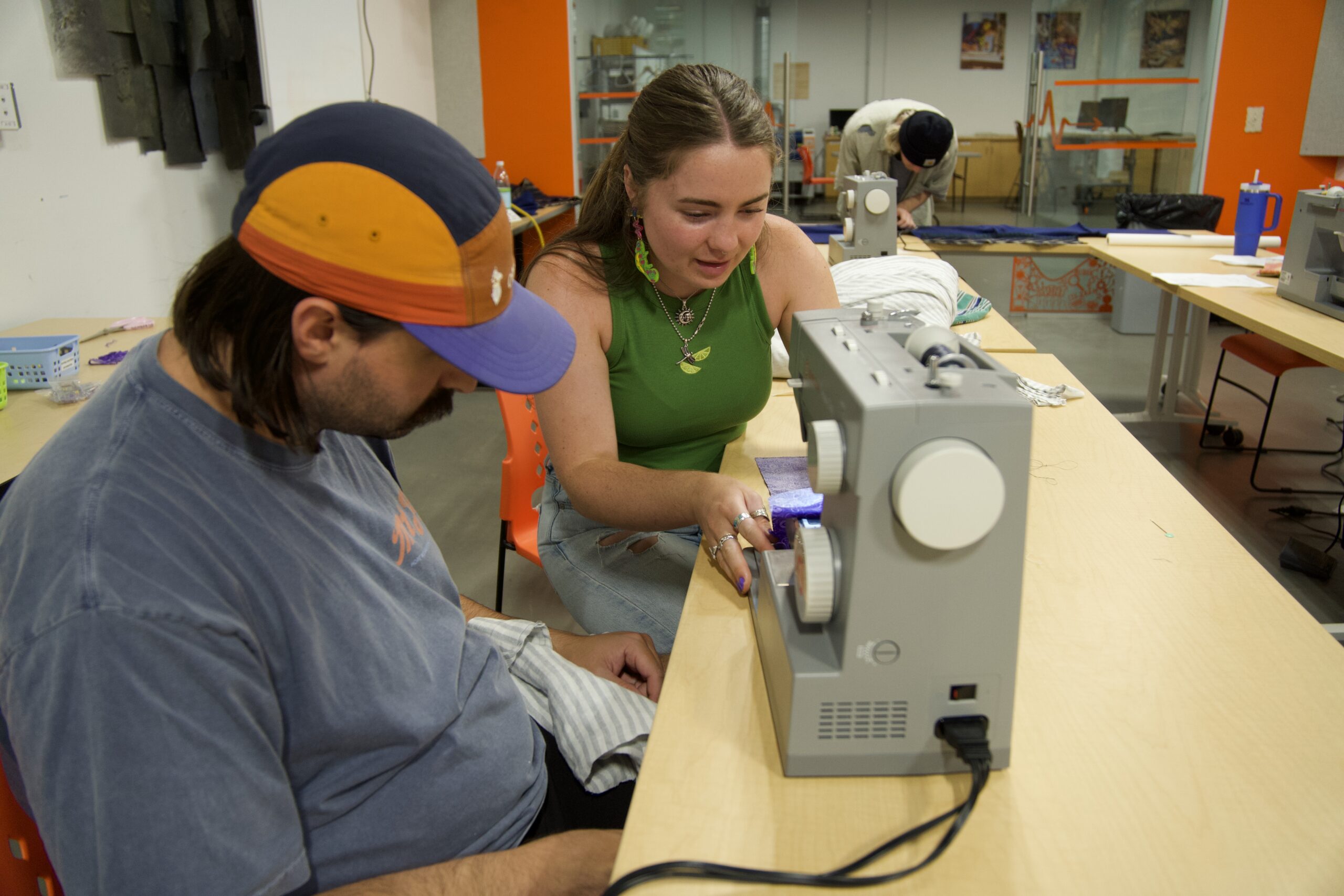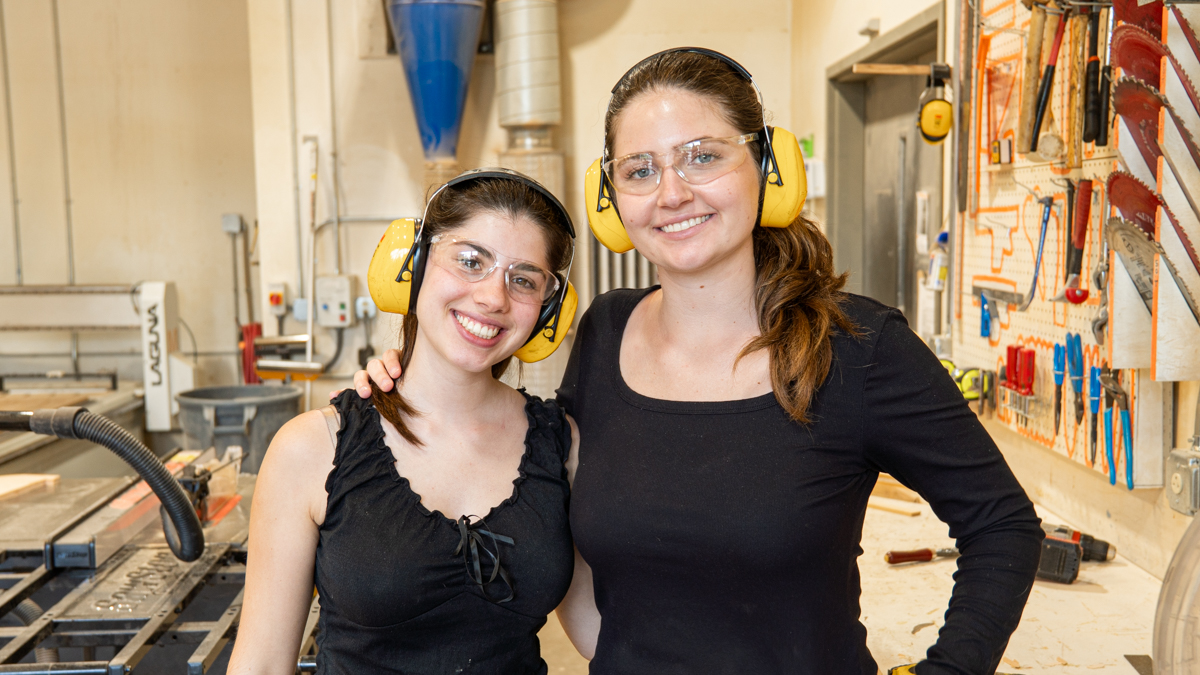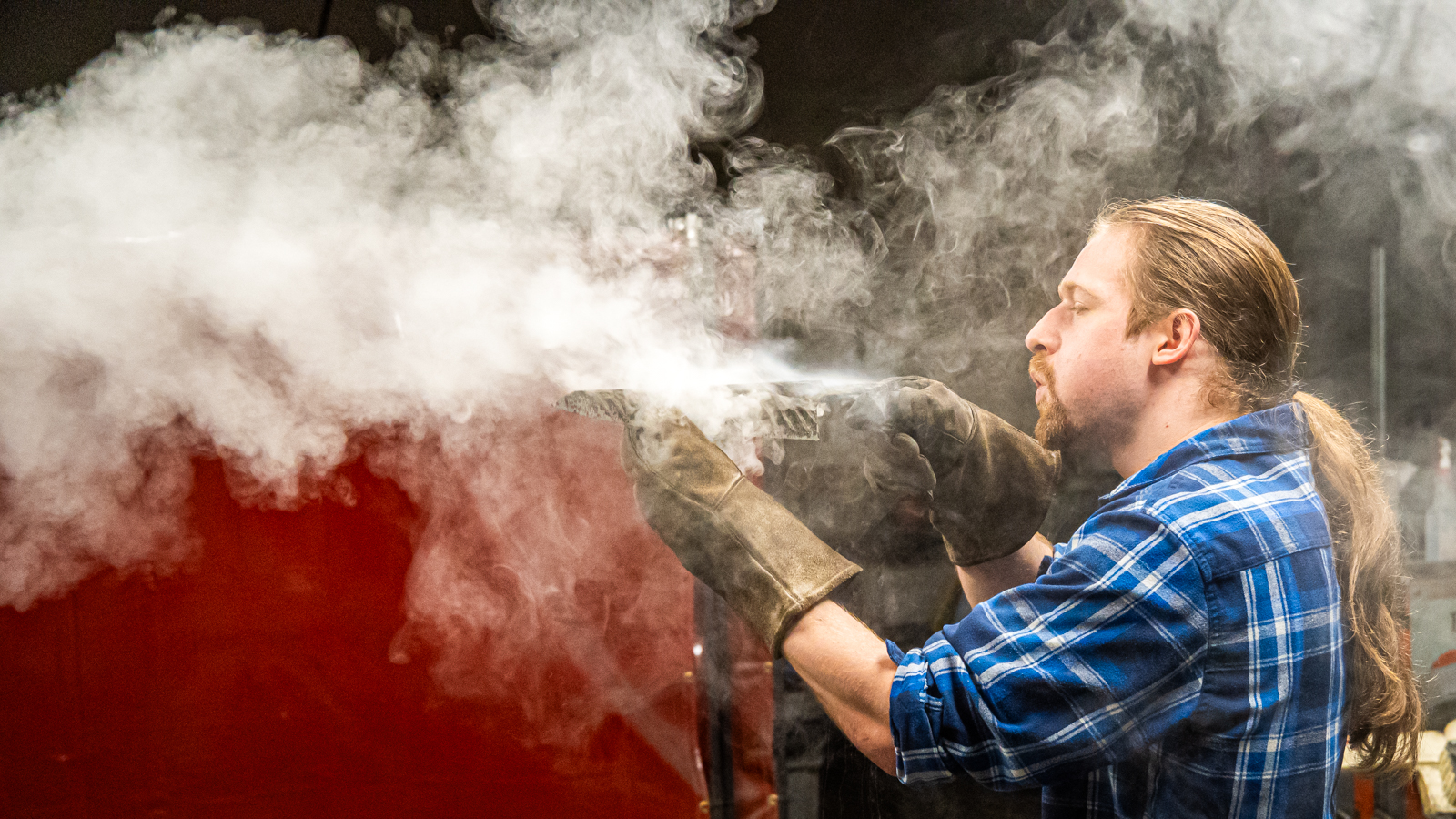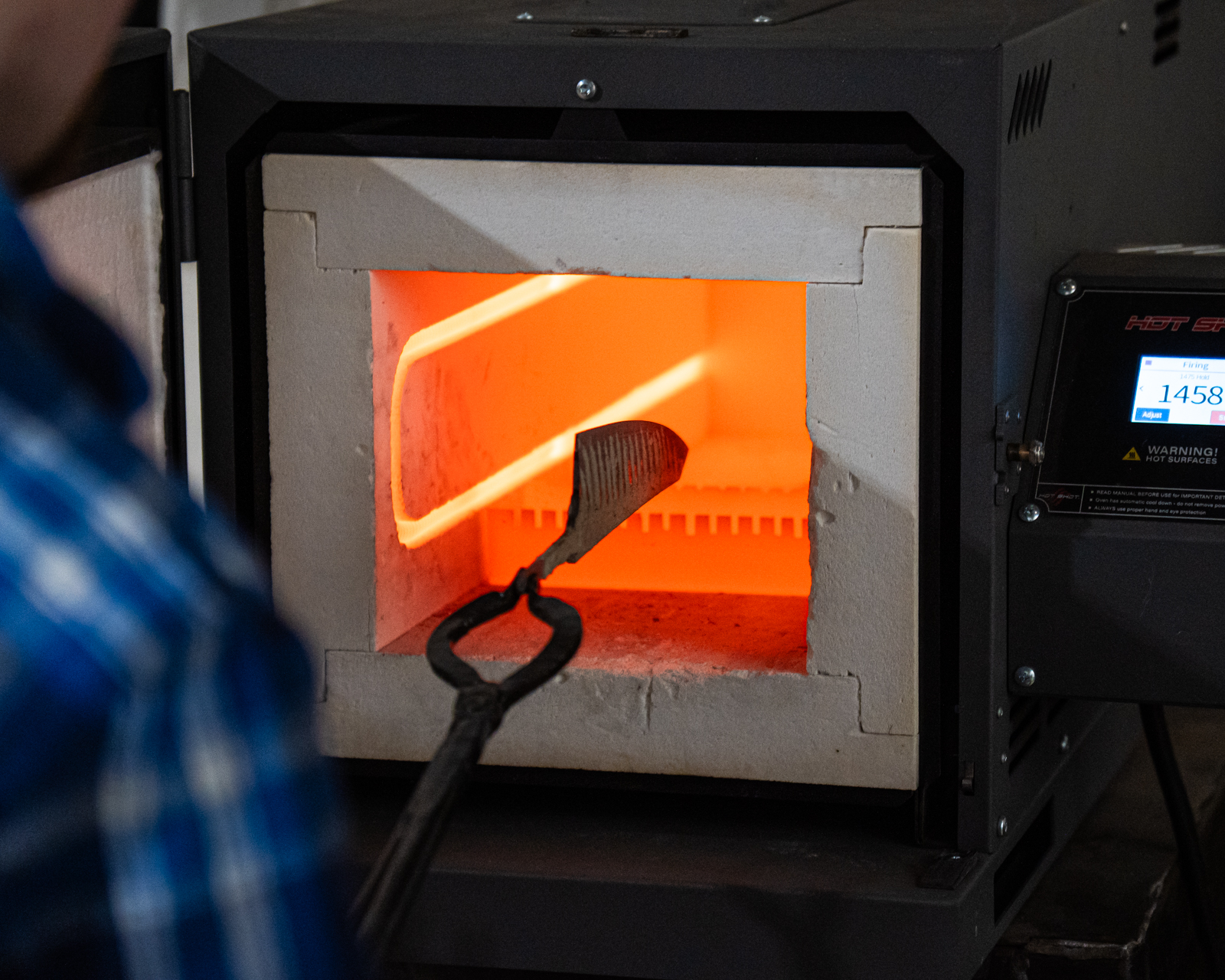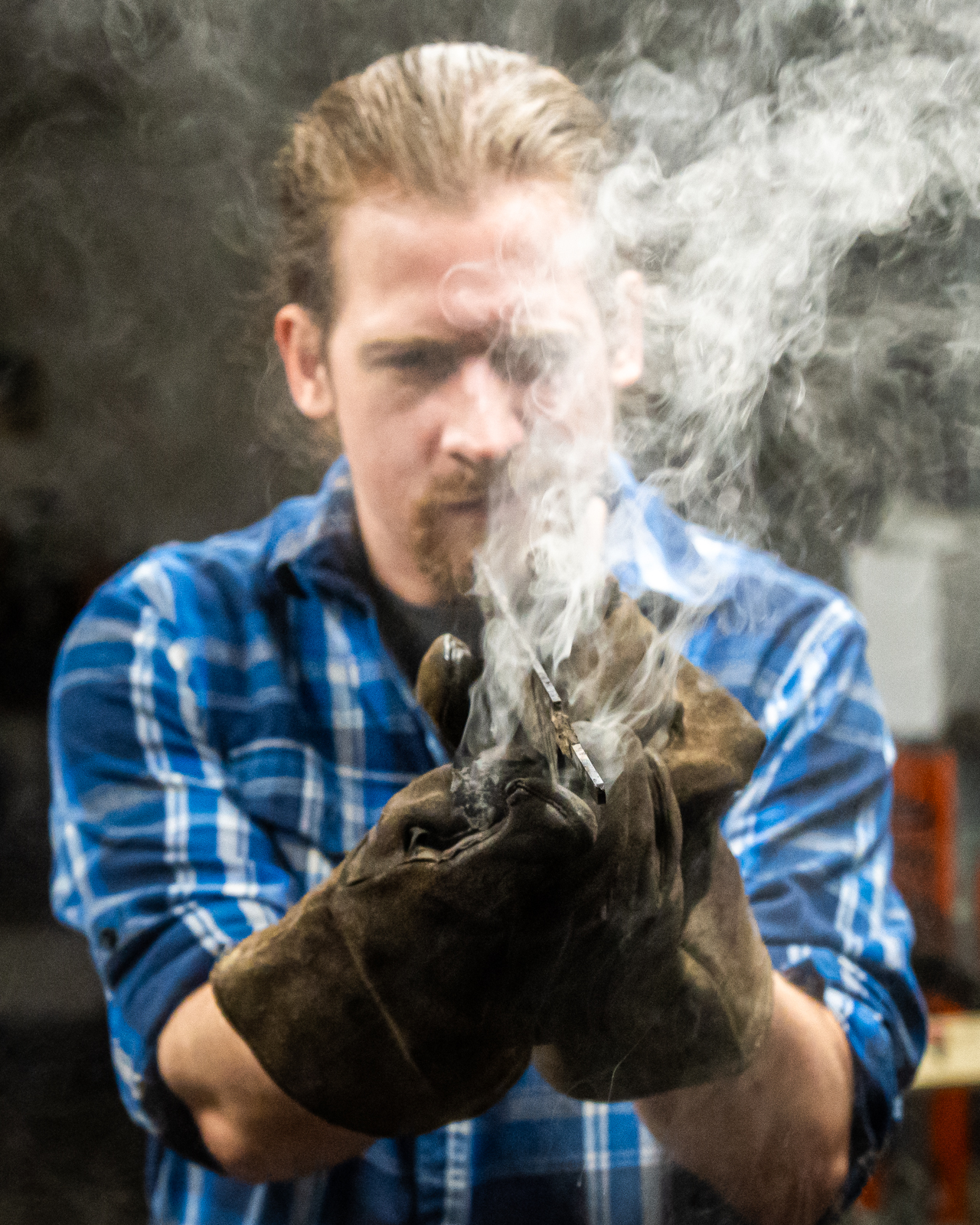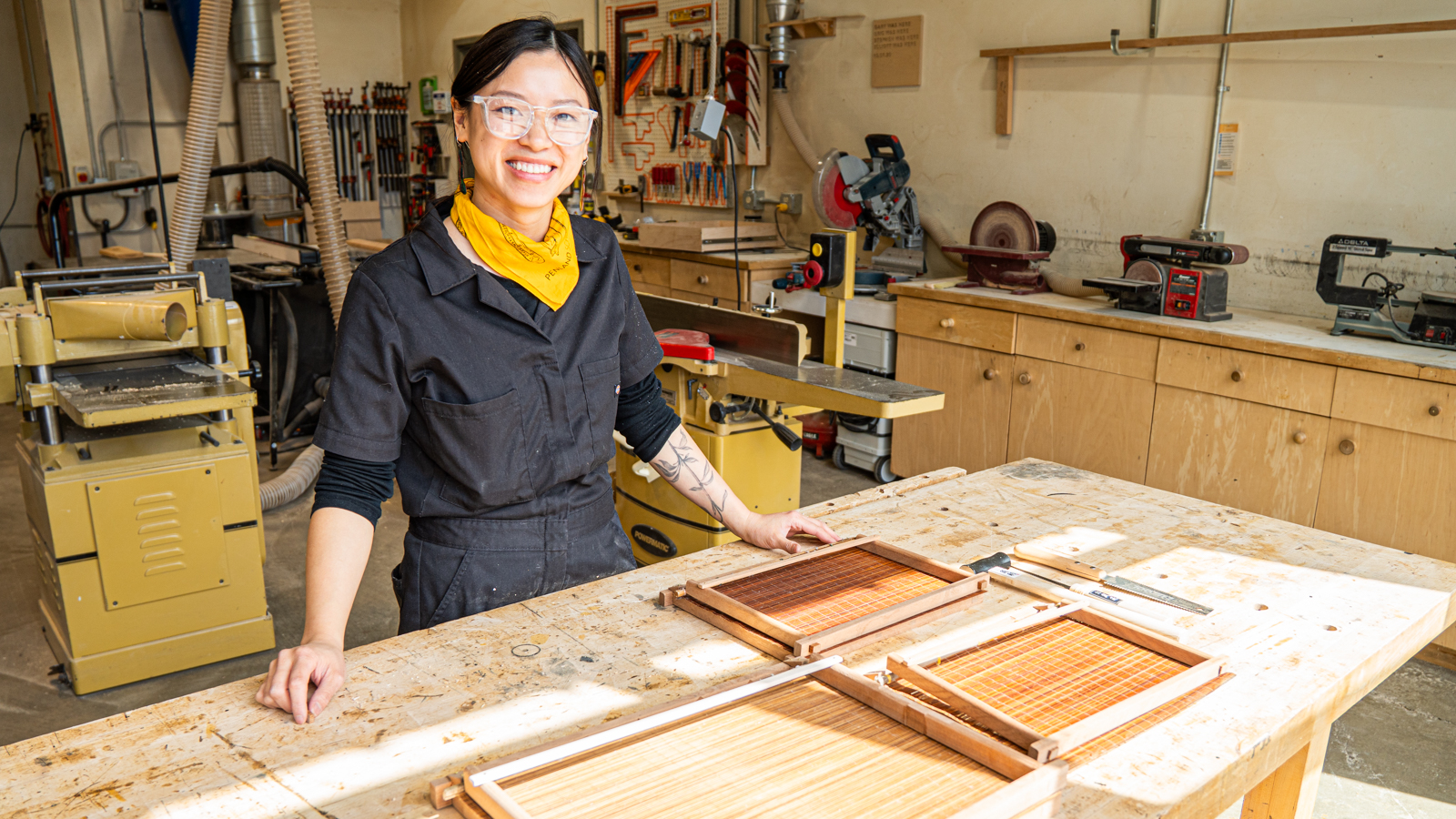Today we got to sit down with Dana Jelter to learn a little bit more about her and her art! Dana is an artist who we’ve had the privilege of hosting here at Generator as our most recent Artist-In-Residence. Dana utilized her residency to design, sculpt, and dress new puppet characters for her upcoming stop motion film. Towards the end of her residency, we had to opportunity to learn more about Dana’s influences and future plans that we are excited to share below!
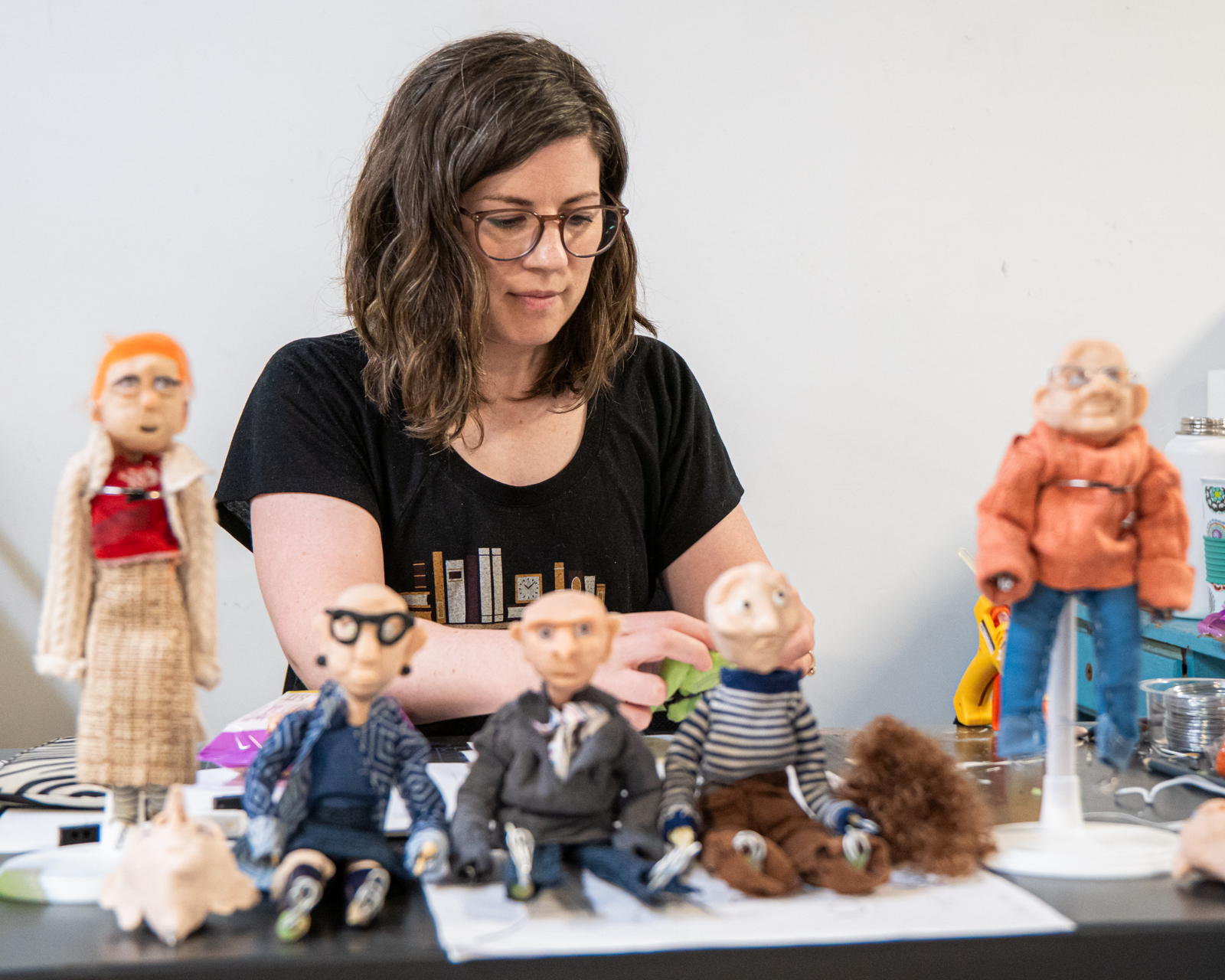
Name: Dana Jelter
Current Location: Burlington, VT
Hometown/Birthplace: Hudson, NY
Instagram: @danajelter
Tell us a little bit about yourself… your background, education, etc.
I’m originally from Hudson, NY, a small, artsy town just a two-hour train ride from New York City. I went to college in Connecticut at Fairfield University where I got a media studies degree and it was great for my future career. I was able to complete an internship in Florence, Italy, with an independent theater called FESTA. It was run by two ex-pat women who would put on amazing plays at theaters across Italy and they also did these fun, confidence-building workshops for kids. I got to help them with both and it really solidified that I wanted to work in entertainment. When I came back from studying abroad, Fairfield’s close proximity to New York City allowed me to get an internship with Nick Jr. in Times Square, so I continued to work in children’s media for a bit.
After graduation I decided to head to San Francisco and I ended up staying for 9 years. A huge part of that was because I landed a job at Lucasfilm (Star Wars), where I was able to do amazing things. Me and my team won an Emmy while I was a writer/associate producer for StarWars.com which was cool! I also met my husband in San Francisco who is also an artist (among many other things!).
Once the pandemic hit, we moved to the Burlington area since big city living had lost its appeal. We had friends nearby and my husband was able to get a job. So we’ve been here since 2020, and now have an almost three-year-old son.

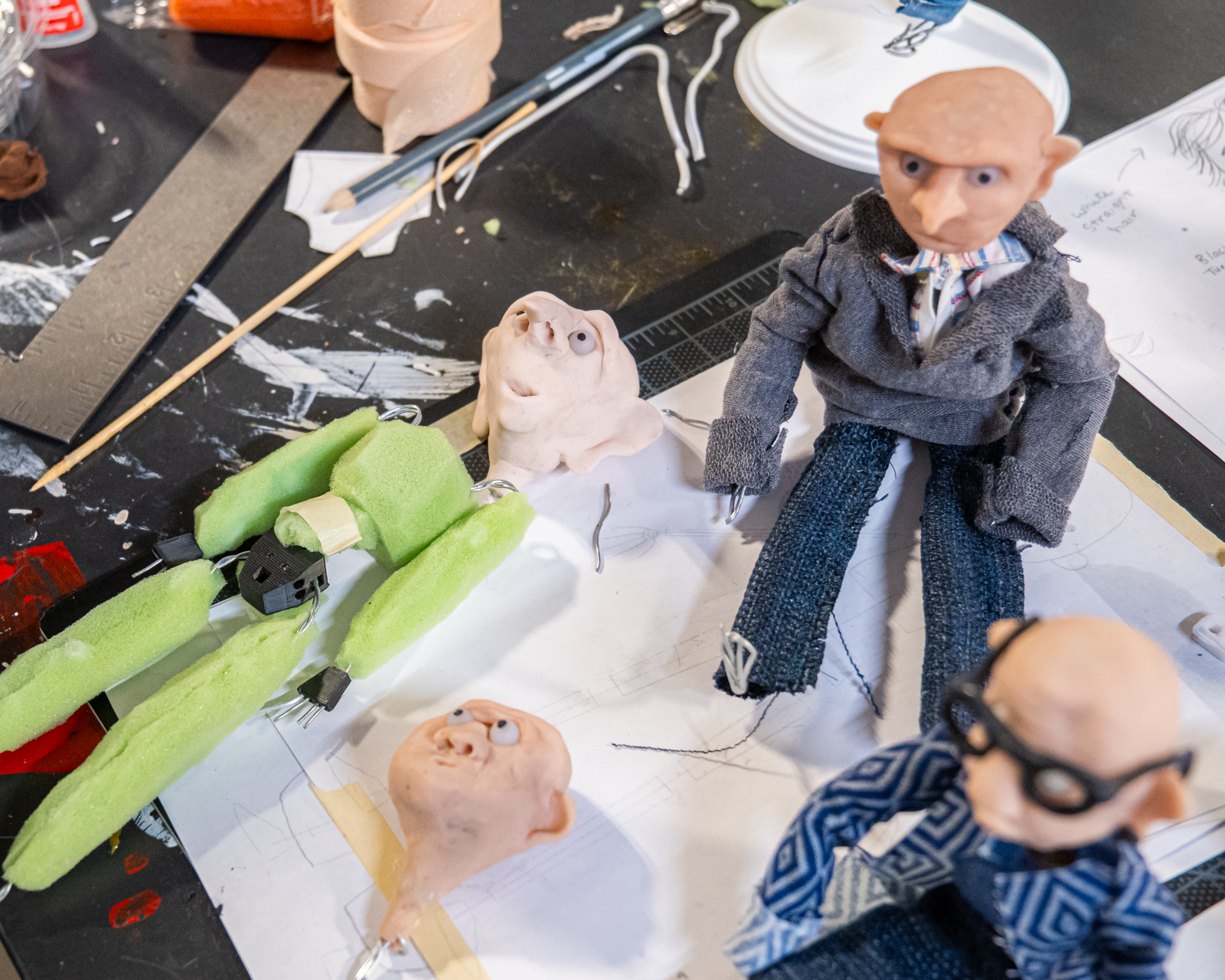
How did you find yourself creating puppets- was this something you learnt growing up or was an art you discovered while in school?
Puppets were always fascinating to me. Most kids love Sesame Street growing up but I always felt particularly connected to the Muppets. I just thought they were the most unique, funny, characters. I credit Jim Henson for molding my interests and passions and I don’t know if I’d do what I do, if he didn’t do what he did!
In addition to the Muppets I loved stop-motion animation. I watched Gumby as a kid, Wallace & Gromit, Henry Selick and Tim Burton’s stop-motion films, etc. There was something really captivating about the art of stop-motion for me. The fact that unlike hand-drawn, traditional animation, this style seemed more real. They are tangible characters, and the handmade, imperfect look of them takes on an almost eerie quality. I always loved spooky things so the fact that this style is a little off-kilter really appeals to my weird side.
Not long after college I saw the film Mary & Max by Australian animator Adam Elliot, and he was sort of the second Jim Henson for me when it comes to influences. I’ve never been so blown away by a film. It was one of those, “holy sh*t” moments where I knew I had to do what he was doing. Not totally rip him off, of course, but there was no better art form for me, than his extremely awkward-looking puppets that told stories about real people with real quirks. He calls his films “clayographies” and I just think they are so unique. Check out his newest film, Memoir of a Snail. It is amazing.
So I started writing screenplays and took some film classes. I loved the storytelling side of things but I just could not shake wanting to make stop-motion puppets. I think I started sculpting in clay around 2014 and made my first stop-motion puppet in 2017. I didn’t take any classes, just learned from many talented artists on YouTube. So I took photos of the puppets, put them on my Instagram, and when they started to get a little buzz, I thought “Ok, some people actually like these, they’re not too weird.”
So my husband and I decided to go to a couple conventions to sell our art and books. We made a book of short stories together, so we sold the book and I sold magnets of just sculpted heads. Some people did think they were too weird… which I sort of loved. The people that came by our table would either cringe and keep walking, or they were just blown away. I take the polarity as a win. The coolest moment was when one woman walked up to one of my characters and started to tear up because it happened to look just like her grandfather. As an artist there is nothing more special than that.
After I got conventions out of my system I started working with my husband’s uncle who has a band in Norway. He loved what I was doing and asked me to shoot some videos for his band, Meg og Kammeraten Min. So I made three different videos for songs he sent me. They are not stop-motion animated, they are just live-action shot, edited videos of me playing around with different styles of puppets.
Since then I took a stop-motion animation class with the School of Visual Arts in New York but I’ve realized that I don’t really love the process of animating. I love to write about it (I have a book coming out in September) and I love designing and creating characters, but the animation is so incredibly time consuming that I don’t have the stamina at the moment. Maybe someday, but for now, I love the idea of 3D illustration.
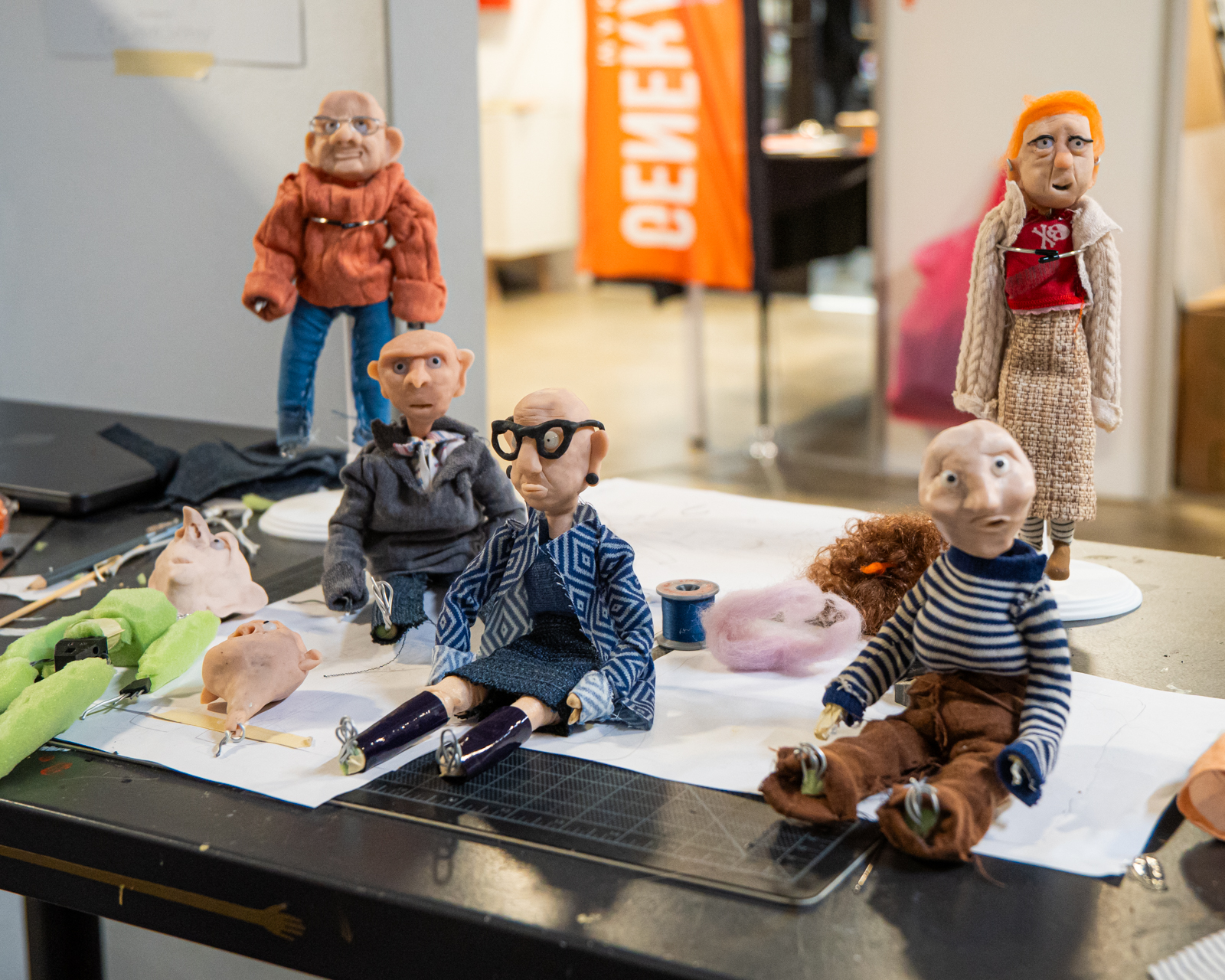
How did you hear about Generator’s Artist-In-Residence program?
I learned about the program just from looking through Generator’s website. I think I saw Generator on social media, and it looked like such a cool place I had to check it out. I applied for the AiR program because it seemed like the perfect fit for me. I got to visit Generator for the 10th anniversary party and then found out I got the residency shortly after. I was so excited!
Was there anything unique about this program that made it feel worth pursuing?
The community aspect is definitely unique about this program. I loved that I could be sitting at my studio on a random afternoon and have someone stop by just because they’re interested in what I’m working on. When you work by yourself at home you miss out on those interactions. It’s not only a confidence boost to have others interested in my work, but I also got unique perspectives and inspiration from the art that others have created at Generator.
As a Generator Artist-In-Residence, what has your experience been like?
I had such a great experience. The ability to learn from other artists and try out tools I’d never have access to otherwise has been invaluable to me. I was able to try out new ways of creating my art, for instance, 3D printing parts of my puppets. It’s not something I would have thought to do, but it made the structure of my puppets so much stronger. So overall the experience has made my creations more solid and I’ve gotten faster at building up the armatures, which was always my least favorite part. I don’t mind it so much now!
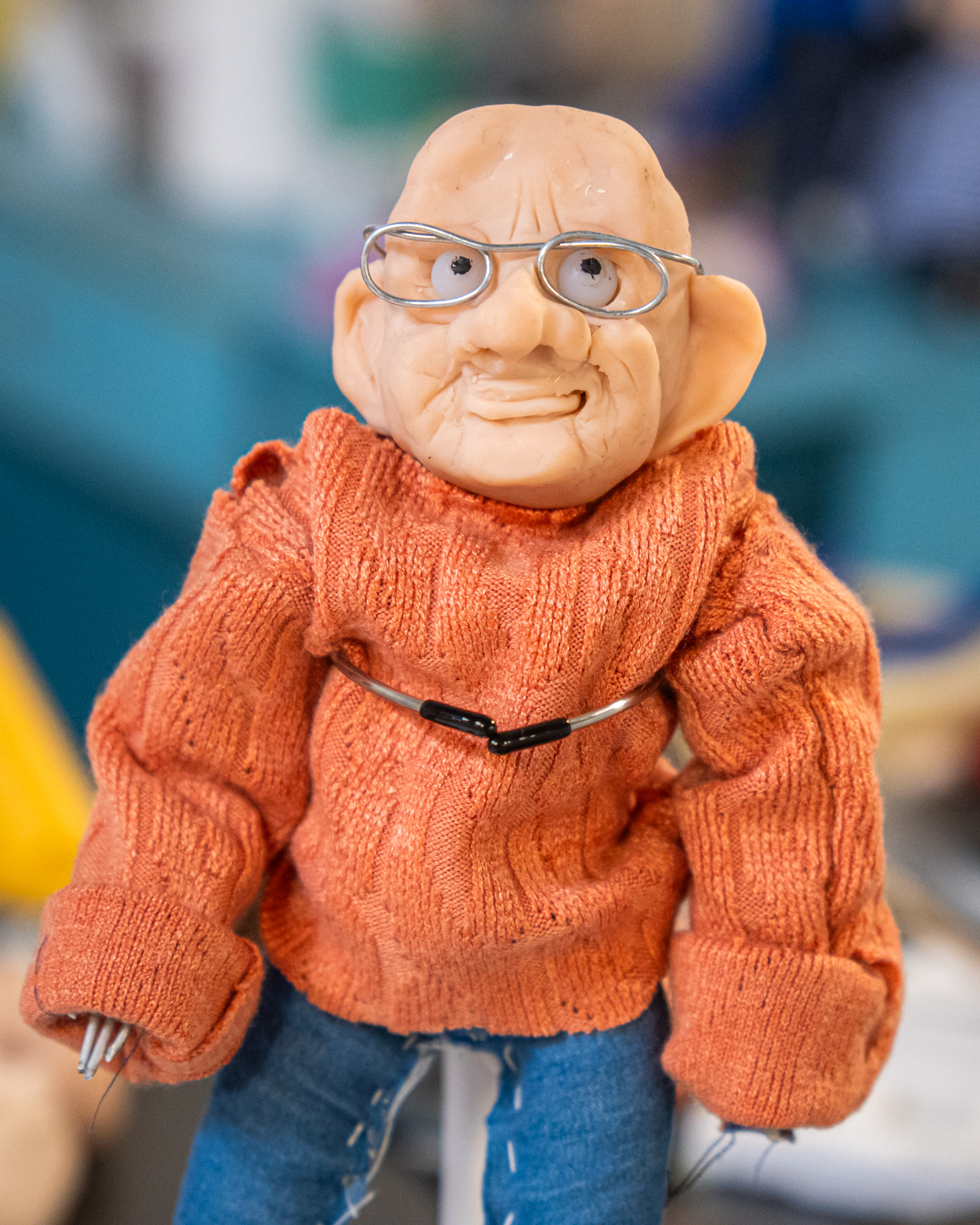

What was the main project that you were building on during your Residency?
During my residency I’ve been building puppets for a project I’m calling “Folks of Vermont.” I collected uniquely Vermont micro stories (think cows, snow, small-town mentality, etc) from real Vermonters and I’m going to illustrate a short book of stories with photos of my puppets. So it’s essentially a 3D-illustrated picture book. My inspiration here has been Red Nose Studio, the amazing work of Chris Sickels. This style has also been done by a South Korean artist, Baek Heena, whose book was just made into a short film and nominated for an Oscar. So it’s not unheard of, a few artists have done it, but it’s pretty rare.
I currently have eight stories ready for my book, but that might grow! The stories are super short but have so much personality; it was not hard to think up characters for them. I collected the stories anonymously (aside from the town in VT in which they happened), which I actually prefer because I got to envision what the characters look like on my own. After doing some sketches and planning out the main scene of the story, I built my puppets. So while at Generator I built the puppet armatures (skeletons) using the 3D printer for some pieces like the chest, pelvis, and palms. I used the sewing room to make the clothing, and I just enjoyed having a studio space to sculpt — away from my curious toddler at home!
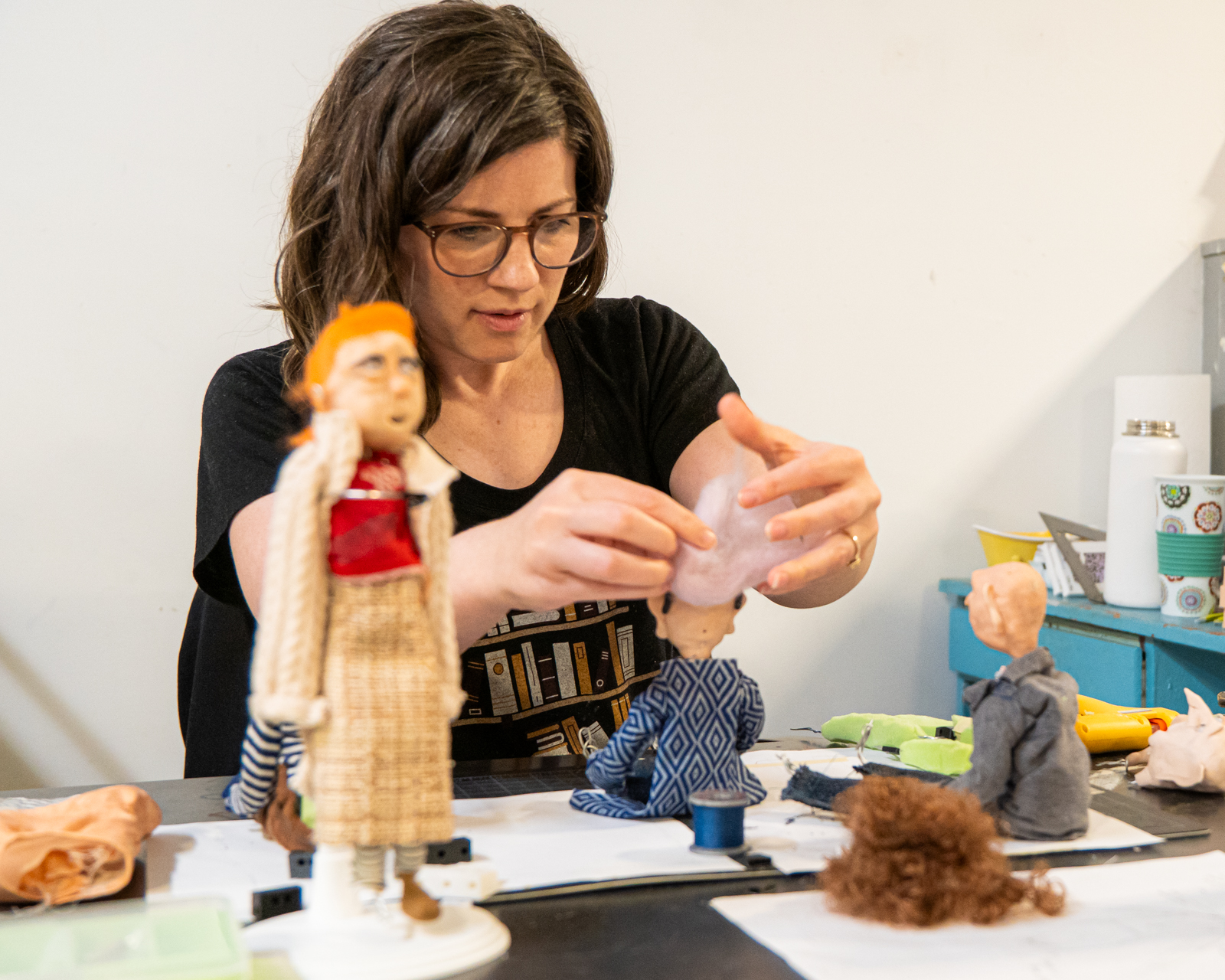
How have you grown as an artist during your residency? Are there things about the community, or the tools available, that allowed you to grow in ways that might not have been possible otherwise?
As a Mom, everyone knows you put yourself second constantly. When I became a Mom I really didn’t want to lose what made me “me,” and part of that was sculpting my weird little characters. I have a full-time job as an editorial manager, so I’m writing, editing, and managing writers all day for work, taking care of my son between nanny shifts, and I’m obviously super tired at night. But having a three-month block on my calendar to actually get in the car and drive to a studio was an impetus for me to create. I really didn’t want to throw away the amazing opportunity I was given, so I tried to get to the studio as much as I could… usually on nights and weekends and whenever I had a free hour or two.
This made me grow as an artist because I realized you don’t need to have hours and hours to be creative. If I had an hour, cool, that’s enough time to start sculpting a face. Or if I have 2-3 that’s perfect for putting an armature together. When I had 5 hours on the weekend it felt like someone gave me a bag of gold. Time is such a precious commodity for parents and to have a designated space to just sit and make things?! I was so lucky.
And then being able to work with a sewing machine was always something I wanted to do. A lot of the puppet clothes are very tiny, so I still had to hand-sew most things, but knowing how to thread a bobbin, turn on the machine, sew even a straight line was huge for me. And the 3D printer was super intriguing as someone who makes miniature objects by hand. The first thing I made was a tiny fruit bowl during my tool training and I was so happy with it!
Do you have any advice for incoming Artist-in-Residence?
Use the first month (before you get your studio space) to plan every detail. I wish I had done more planning first, because the three months go by very quickly!
What’s you next goal for your art? Do you hope to accomplish anything in particular with your art?
The Folks of Vermont project is not yet complete, so I hope to keep working on it over the next year, at least! I’d love to get the book published and see it sold in local bookstores. The longterm goal with my art has always been to shine light on real situations and people. I like telling stories with unlikely protagonists and characters you don’t see much of in mainstream media. I want to inspire other people to make art that’s not cookie cutter, and tell stories that are unexpected. I want to make people feel things: good, bad, sad, creeped out — all of it!
Huge shout out to Dana for sharing her art and experience with the community at Generator! To learn more about Generator’s Artist in Residence program, check out our website!

